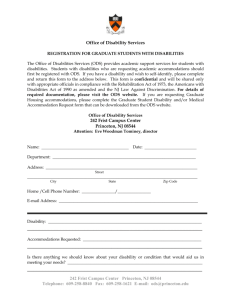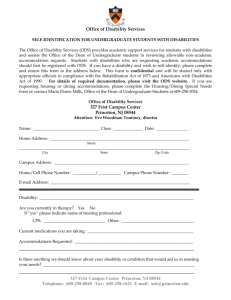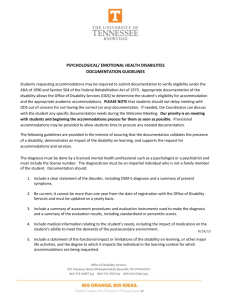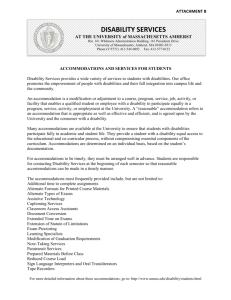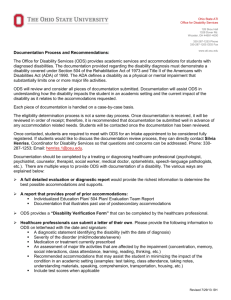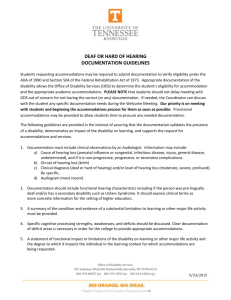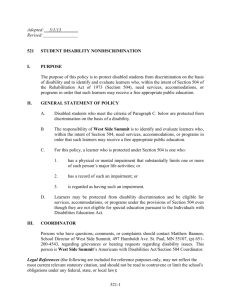Documentation Guidelines
advertisement
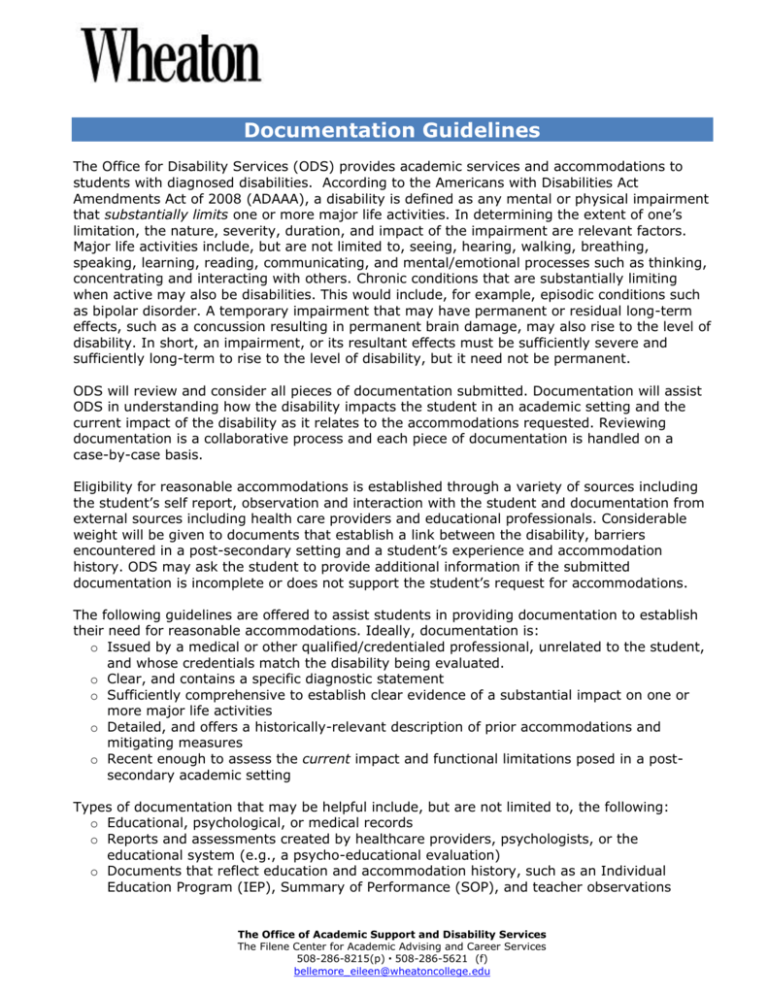
Documentation Guidelines The Office for Disability Services (ODS) provides academic services and accommodations to students with diagnosed disabilities. According to the Americans with Disabilities Act Amendments Act of 2008 (ADAAA), a disability is defined as any mental or physical impairment that substantially limits one or more major life activities. In determining the extent of one’s limitation, the nature, severity, duration, and impact of the impairment are relevant factors. Major life activities include, but are not limited to, seeing, hearing, walking, breathing, speaking, learning, reading, communicating, and mental/emotional processes such as thinking, concentrating and interacting with others. Chronic conditions that are substantially limiting when active may also be disabilities. This would include, for example, episodic conditions such as bipolar disorder. A temporary impairment that may have permanent or residual long-term effects, such as a concussion resulting in permanent brain damage, may also rise to the level of disability. In short, an impairment, or its resultant effects must be sufficiently severe and sufficiently long-term to rise to the level of disability, but it need not be permanent. ODS will review and consider all pieces of documentation submitted. Documentation will assist ODS in understanding how the disability impacts the student in an academic setting and the current impact of the disability as it relates to the accommodations requested. Reviewing documentation is a collaborative process and each piece of documentation is handled on a case-by-case basis. Eligibility for reasonable accommodations is established through a variety of sources including the student’s self report, observation and interaction with the student and documentation from external sources including health care providers and educational professionals. Considerable weight will be given to documents that establish a link between the disability, barriers encountered in a post-secondary setting and a student’s experience and accommodation history. ODS may ask the student to provide additional information if the submitted documentation is incomplete or does not support the student’s request for accommodations. The following guidelines are offered to assist students in providing documentation to establish their need for reasonable accommodations. Ideally, documentation is: o Issued by a medical or other qualified/credentialed professional, unrelated to the student, and whose credentials match the disability being evaluated. o Clear, and contains a specific diagnostic statement o Sufficiently comprehensive to establish clear evidence of a substantial impact on one or more major life activities o Detailed, and offers a historically-relevant description of prior accommodations and mitigating measures o Recent enough to assess the current impact and functional limitations posed in a postsecondary academic setting Types of documentation that may be helpful include, but are not limited to, the following: o Educational, psychological, or medical records o Reports and assessments created by healthcare providers, psychologists, or the educational system (e.g., a psycho-educational evaluation) o Documents that reflect education and accommodation history, such as an Individual Education Program (IEP), Summary of Performance (SOP), and teacher observations The Office of Academic Support and Disability Services The Filene Center for Academic Advising and Career Services 508-286-8215(p) 508-286-5621 (f) bellemore_eileen@wheatoncollege.edu

